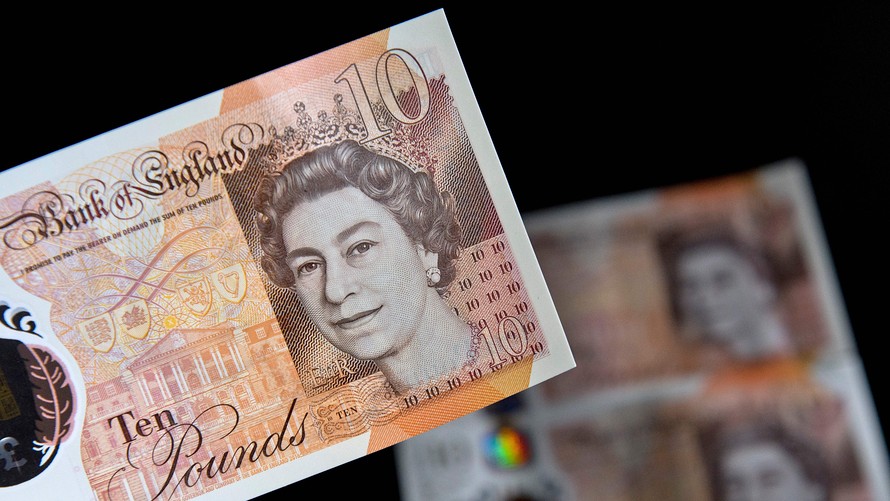The sterling reversed earlier gains on Tuesday on concerns that Prime Minister Theresa May’s request for postponing Brexit was running into complications with the European Union.
May is asking the EU to delay Brexit by at least three months after her plans for another vote on her twice-defeated divorce deal were thrown into crisis.
British pound turnover surges as Brexit uncertainty rises
Markets are convinced an extension will be granted, but media reports that some EU officials are reluctant to grant an extension simply to gain time weighed on the British currency.
The pound fell from as high as $1.3311 to $1.3260, up slightly on the day. Sterling also dropped versus the euro and by 1455 was 0.1 percent lower at 85.59 pence.
Societe Generale analyst Kit Juckes noted that the betting market is “convinced that there will be an extension, thinks a no-deal exit is highly unlikely and is warming to the idea of a second referendum.
“That’s not out of line with the way sterling has traded in the last 24 hours, though market chatter suggests that an awful lot of people think the risk of a no-deal exit is a good bit higher than the market or the betting public believe,” he said.
The British currency rallied to a 9-month high against the greenback of nearly $1.34 last week, as investors largely priced out a no-deal Brexit scenario.
Sterling held near the day’s highs earlier on Tuesday after data showed that British employers increased their hiring at the fastest pace in three years – helping to push the unemployment rate to its lowest since the start of 1975.
But the currency got off to a volatile start to the week, shedding half a percent on Monday after John Bercow, the speaker of parliament, said May’s Brexit deal could not be voted on again unless it was substantially altered.
The pound’s fall on Bercow’s ruling was quickly reversed, partly on confusion over the next steps and a reluctance to take directional bets, but also because there was little disturbance to the running market assumption of “deal or delay”.
“The predominant notion adopted by the market is that, as long as the worst case scenario of hard Brexit is avoided by delaying Brexit, the pound is a buy on dips,” Rabobank strategists said in a note.
Morgan Stanley strategists also said the pound remained a buy on dips. The U.S. bank’s positioning tracker showed broader market positions on the pound was broadly neutral.
Despite the latest political developments, various gauges of volatility indicators for the pound ticked lower on Tuesday, reflecting a broader drop in forex volatility.
Sterling implied volatility falls on Brexit delay prospect












